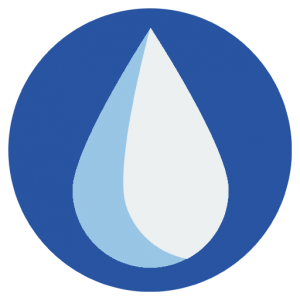
Since the end of the US war in Vietnam, drug and alcohol abuse have received a great deal of attention. Unfortunately, much of that attention has come in the form of debate, while scientific research has been scant considering the size of the problem. From 2006-2010 the US lost an average of 88,000 lives per year to alcohol related death. Thats 30,000 more in each year than we lost in the combined years of the Vietnam war. And it doesn’t take in to consideration any other addictive substance. It is also responsible for 2.5 million hours of missed work annually. The cost to the US economy is conservatively estimated at $249 Billion.
The debate has been organized around three main theories of addiction.
The most prevalent of these is the Disease Model, in which addiction is considered a chronic, progressive brain disease. This model studies genetic predisposition and the changes in brain structure as evidenced by brain scan technology. Treating it is, thus, a medical issue best handled by medical professionals and characterized by EBT (Evidence Based Treatment).
Critics suggest that the model is too unidimensional in that it all but ignores spiritual and social factors. Physicians who practice addiction medicine say that they follow a wholistic approach with science as the north star.
The second most prevalent theory is the Spiritual Model espoused by most 12 step groups including Alcoholics Anonymous, Narcotics Anonymous, Cocaine Anonymous, and others. According to the spiritual model, addiction is caused, in part, by a spiritual deficiency and it is often described in 12 step groups as an allergy.
As the addicting substance is used in an attempt to smooth over spiritual disconnection, the road to recovery follows spiritual steps from admission and surrender to a higher power, to righting ones wrongs and carrying the solution to those who still suffer. There are many thousands of AA meetings daily in the United States alone. AA states that those who are capable of being rigorously honest with themselves have a very good chance of achieving remission. In his book Clean, David Sheff points out that AA is now becoming considered an Evidence Based Treatment protocol that offers much the same benefits as the Social Model. We will discuss the Social Model later in this post.
The third theory has fallen almost entirely out of favor with the addiction medicine community. It is known as the Moral Model.
It is, however, still a popular belief among those in the general population and a source of shame for the sufferer. According to this model, addiction is a moral failing characterized by a deficiency of will power. This approach has led to stigmatization and punishment of the addict. It has been suggested by medical practitioners that if it were a deficiency of willpower, we wouldn’t see highly successful and motivated people succumb to it as often as we do.
In recent years, a fourth Model has emerged: the Social Model.
According to the Social Model, addiction is the result of insufficient social connection. As Johann Hari so famously suggested, perhaps “the opposite of addiction isn’t sobriety, the opposite of addiction is connection.”
In considering the Social Model, questions began being asked about why Grandma doesn’t come home from hip surgery with an addiction to pain medication? It has been suggested that the reason is that she is surrounded by friends and family, and those connections somehow replace the addiction she would otherwise suffer. Reliable statistics on that observation have been hard to come by.
In the 1960’s, animal drug self-administration experiments were in vogue, In many of these studies, rats were tethered in a cage alone with a drug IV attached to their backs and no way of disconnecting it. The addictive substance was then administered for a period of time before the rats were offered a lever, the pressing of which would administer a dose. As some of the rats self-administered themselves to death, the conclusion was drawn that the drug was the sole cause of addiction. The problem with this conclusion should be apparent. It is not often that humans are tethered to a cage in solitary confinement, trained to take a drug, exposed to the drug at regular intervals with no food, water, or companionship, and then allowed to self-administer the drug to prevent withdrawal symptoms or avoid the effects of the torture being inflicted. In their book, Crack in America: Demon Drugs and Social Justice, Morgan and Zimmer quipped, “…the definition of a drug is any substance that, when injected into a rat, produces a journal article.”
Much of Hari’s connection assertion seems to be based on the “Rat Park” study by Psychologist Bruce Alexander in the early 1970’s in which rats were placed in a “park” with other rats, things with which to play, as well as plenty of food and freedom of movement. These rats consumed 75% less of the drug than had the tethered rats. Thus, it has been surmised that the ability to “connect” with other rats prevented them from becoming more addicted.
In human studies, the need for social connection has been demonstrated many times over. Whether or not social isolation is a primary cause of addiction or a contributing factor is unclear. What is clear is that social isolation is, at least, a strong contributor to addiction and a reliable predictor of relapse. The subject merits further study.
One thing that is certain is that we must continue to seek better solutions, and that will require cooperation on all fronts. From MD’s and psychiatrist to counselors and addicts, all hands will be required on deck if we are to make progress. With only about 10% of those who need help seeking it, and only a small fraction of those succeeding, it is no time for fighting about who’s right when statistics indicate the riddle has yet to be solved.
Written by Thom Deem.
Thom is the recovery director at Pacific Crossroads Church in Los Angeles and Founder of CleanAndSocial.com, a recovery focused social platform.






















